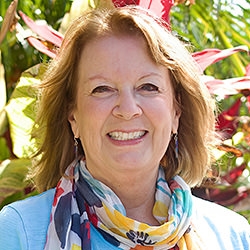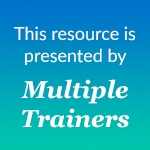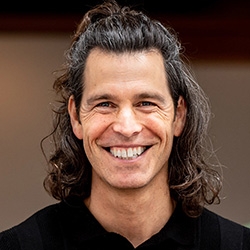

Search Results: nvc
-
We all blow it sometimes. Maybe we are triggered and react in ways we regret. Or we unknowingly say or do something that unexpectedly touches a nerve for someone else. Either way, how do we heal the disconnection? In this session, you'll learn how to integrate skills for repairing relationships.
-
The human needs that we all share are the foundation of the Nonviolent Communication (NVC) process because it is in connecting to needs that we find inner freedom, empowerment and compassion.
-
Interested in bringing NVC consciousness to your workplace, but want to use a natural and conversational way of speaking? Listen in as Jeff describes three specific skills you can apply immediately: #1: How to express your understanding of a co-worker’s needs; #2: How to apply the three dimensions of needs in a business setting; and #3: How to make a Symbiotic Request that acknowledges holding multiple needs.
-
One clue we have trauma is when we respond in a way we don't want (eg. being reactive, self sabotaging, etc). Even when we have high level NVC skills our trauma-related mechanisms can activate, and we can lose access to well honed NVC skills. Read on for approaches that involve healing trauma, and approaches that involve managing the effects of trauma and preventing additional trauma.
-
CNVC trainer Yoram Mosenzon shares how expressing specific and authentic appreciation can deepen connection in intimate relationships. He emphasizes the importance of making clear observations without judgment and connecting with the feelings and needs that arise from meaningful gestures.
-
I am writing to you with CELEBRATION on my mind. The NVC Academy has launched its new and improved website!! If you have not checked it out yet, please do so now: https://nvcacademy.com.
-
The NVC Circle of Life is a mandala illustrating the process and consciousness of Nonviolent Communication. Mandala literally means "sacred circle" and symbolizes wholeness, balance and harmony.
-
-
Practice "power with" parenting for babies to preschoolers with expert guidance from Ingrid.
-
- Easier and steadier access to presence, awareness and self-connection in relationships and challenging situations
- Illumination of basic Buddhist and NVC principles
- A deeper understanding of how to live the Buddhist precepts of non-harming, mindful speech and deep listening
- An introduction to useful tools for families and communities to create a culture of Nonviolent Communication
-
Oren J. Sofer offers an NVC approach to navigating tough moments—balancing honest self-expression with deep listening. Discover how centering yourself, naming your intentions, and hearing the other person first can create the understanding needed for true connection.
-
What do you experience when you give up on needs that are important to you, and are coerced into doing something you didn’t want to do? And why is it hard to make requests? Listen in and learn more.
-
Miki works with a course participant to transform begrudging attendance at a mandatory meeting into the possibility for collaboration, more connection where little is expected and focus on clarity of purpose for meeting in the first place.
-
What would the world be like if there was flow between all of us based on "mutual giving from the heart"? Using examples, this article offers models for us to follow that could inspire us to treat our NVC practice as one of compassionate giving and receiving.
-
NVC is a process. It’s the willingness and effort to empathize with both sides of a conflict, encouraging each side to empathize with the other, and then seeing what solution can arise, working together to meet the needs of both sides. Empathy is the experience of being not separate as well as being an individual. It's seeing we're all part of the one ever-flowing consciousness of being, all unique expressions of this unity.
-
Strengthen your NVC practice to meet conflict with empathy, and ask for what you need.
-
Enjoy Dian's overview of the 4-step model and its application to the workplace. Learn how NVC can help you: generate intrinsic motivation… discover creative solutions… create greater accountability and buy-in…reinforce behaviors you like and change others… and experience a LOT more fun, joy and aliveness at work!
-
Many of us check our full selves at the door when entering our workplace. Would you like to learn how to apply NVC principles at work instead? In this session, Jeff details how you can step into greater authenticity at work!
-
According to this article, what we do before we move into the NVC dance profoundly influences the outcome and everyone involved. This "before" step increases the likelihood of living compassionately, and our support openness to outcome. It can also make our NVC practice less connecting, and more evaluative. The article addresses these points and talks about ways to move beyond the dead past, and the imagined future, to step into the the only “time and place” that both NVC operates and that the connection we so fervently want actually exists (ie. the present moment).
-
Jim and Jori discuss the root of Nonviolent Communication, needs consciousness. Participate in guided processes to deepen your own needs consciousness.

Quick Links
Subscription Preferences
Stay In Touch!
Looking for ways to keep up with NVC Academy news, get special offers, free resources, or words of inspiration? Here are five ways to stay engaged:



















